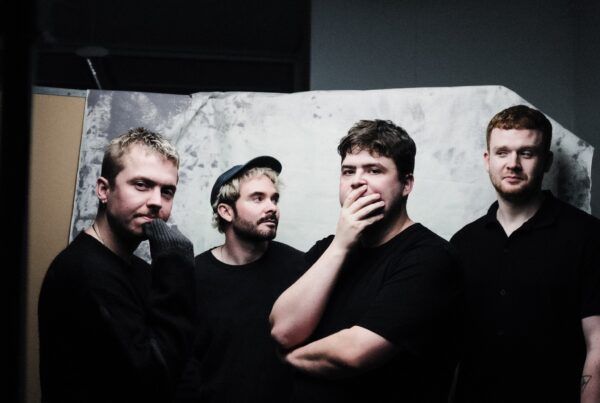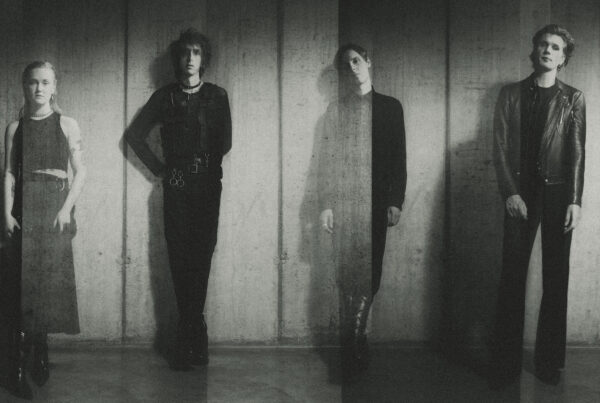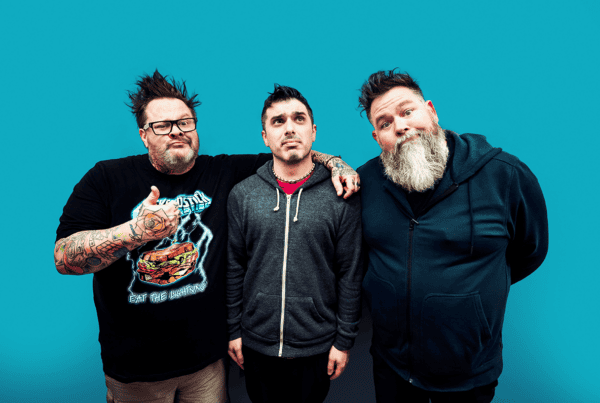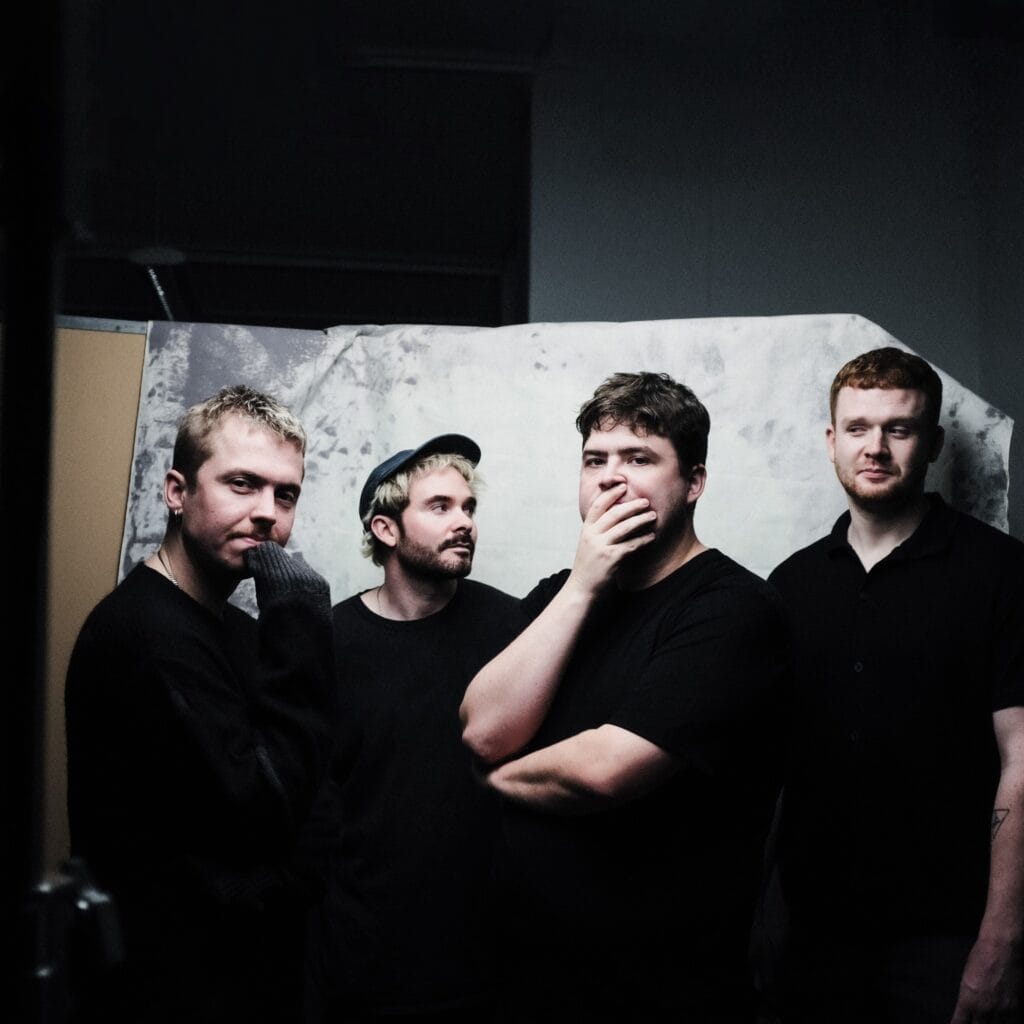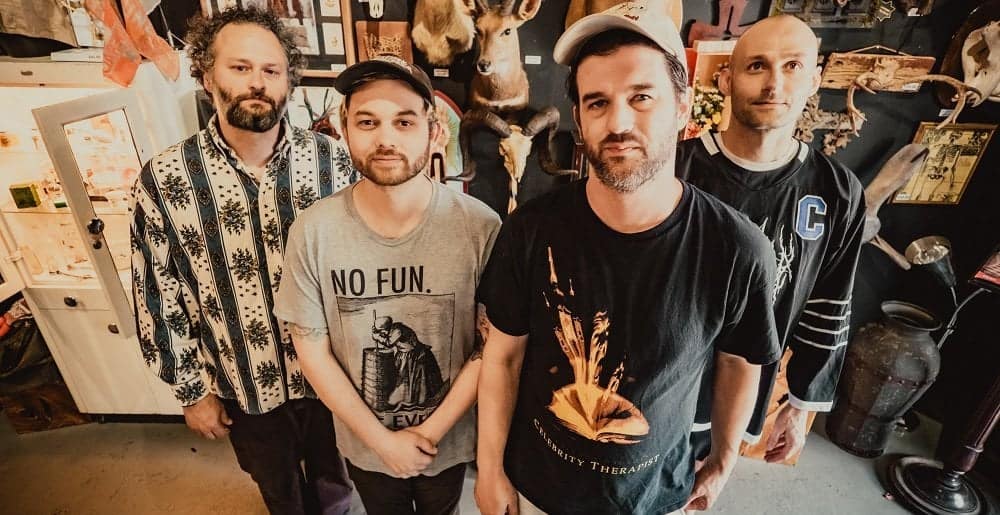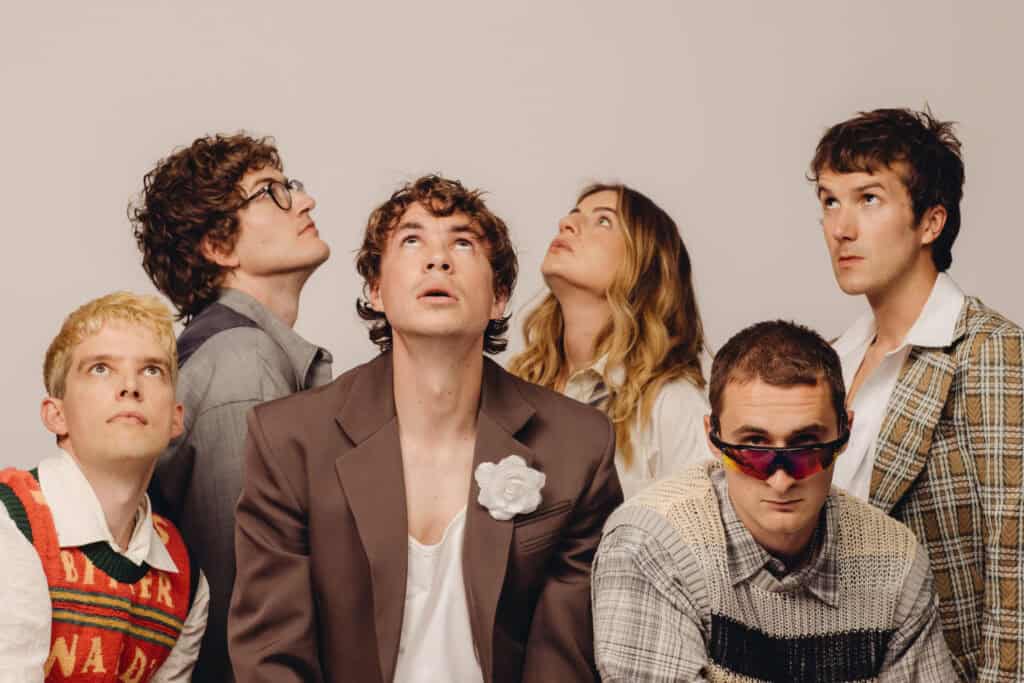Hailing from Bridgend, Wales – as close an approximation to Hell as you could ever hope to avoid – Jayce Lewis has enjoyed a near-meteoric rise on the strength of his eponymous debut album. Success in Asia saw him land in their top ten alongside Linkin Park and Eminem, headlining festivals across India whilst remaining a virtual unknown back home. A UK tour with Gary Numan has helped establish Lewis on home turf, and the recent video for the mesmerising ‘Electric Medicine’ has clocked up an impressive 150,000 odd hits in under two months, which ain’t too shabby either. Soundsphere recently visited the multi-instrumentalist at home in advance of his first ever UK headline show, at the Camden Barfly on May 18, to find out more about the man behind the music.
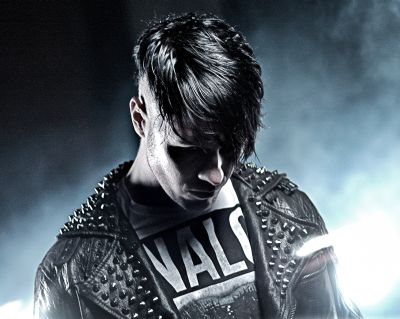
“Playing to about 1,500, for a first gig, I absolutely sh** myself”
S] Hey Jayce! Apparently you played every instrument on your debut album yourself? How come, and just how happy are you with the album now it’s been out there a while?
JL] “Why did I play everything myself? Because I could. I had all these ideas for rhythms on drums, guitar riffs and synths and I wanted to actually get all of the sounds in my head out there. But… I only had that amount of ideas for five songs. I wanted to be a solo artist. I didn’t quite know what I wanted to do, all I know is that I just wanted to write songs, play all the stuff on it and see what it sounded like as I’d never done it before. The first track I wrote was ‘Icon’. I’d never actually sung before, so I went in the studio, recorded the music first and then when it was time to do the vocals I was shi**ing myself, thinking am I about to absolutely ruin these three days’ worth of recording? I did the vocals. ‘Okay, so that’s what I sound like, alright!’ We mixed it a bit, I then gave it to EMI in Asia and it just exploded.
Then the pressure was put on me to put an album together. As I said, I had enough ideas for about five songs, and the realisation that because I’d played all the instruments and written everything, then came the very, very daunting task of having to fill the rest of the album. How happy am I with it? For a first attempt, I’m quite happy with it. The feedback that I’ve had and the fact that the single topped the Asian charts and the album went top ten, I never imagined that that would ever happen, especially on my first attempt. I wish it was heavier but I’ve learned a lot from it. It was a stepping stone for me and I’ve had the opportunity to tour the thing live. I’ve seen what works well live and what doesn’t, and what I enjoy doing live and what I don’t. So, it’s definitely been a good tester for me.”
S] If you hadn’t been happy with your vocals, how would you have felt about getting a vocalist in?
JL] “Yeah, I think I probably would have, providing that they fitted in with it, but then that would have cancelled out the whole solo artist thing. I’ve played drums for years, guitar, bass and keyboards as well, so I just wanted to give the frontman thing a go. I thought I’d give it a whirl and I wanted a new challenge, and I certainly got it. People really took to it, a lot better than anything else I had done before, so I dug myself a bit of a hole there really. The first show I played was in Mumbai, and prior to going out there VH1 had made me artist of the month, so they were rotating the ‘Icon’ video about ten times a day. EMI came back to me and said that I was going to be headlining the VH1 Global Express tour, in India, in a month’s time. And it was like ‘Oh my God!’ I only had a few songs and I didn’t even have a band, so I had to get a band together and it was really rushed. 2009 was absolutely insane for me, so to go out there on the back of that and playing to about 1,500, for a first gig, I absolutely sh** myself. It was such an intense time and the stress was unbelievable to get it all together in time.”
S] So it was a complete trial by fire then?
JL] “Looking back on it, obviously I could have done things better and different and that, but everyone seemed to enjoy it and there was such a big thing being made up about me before I got there. The first day I was there we had interviews with CNN news, loads of news stations and newspapers, VH1 and EMI made a really big thing out of it, and this was before I’d even played, and all this time I’m just thinking “Oh my God…”. I was completely honest with EMI and said that this was going to be my first show but they were like “The single’s doing really well, you’ll be fine.” I couldn’t believe it, I thought “Are you fu**ing mad?” I couldn’t believe it, like. I thought that it must be a wind-up, but we were on the plane heading out there, we got to the hotel and it just dawned that it really was no joke. They all loved ‘Icon’ and were expecting this really big thing and then, when I did the show, I had the biggest anxiety attack I’d ever had. I had a couple of beers and I was a complete nervous wreck. But as the set went along and the crowd were getting into it, I finally started getting into it.”
S] Do you think that if you hadn’t had the success over there first that maybe you wouldn’t have had the opportunity work on a second album or to tour with Gary Numan and the various other projects you have on at the moment?
JL] “I didn’t even shop to any other label than to EMI Asia, and that was because they were the only contacts I really had, so when I gave it to them they knew what to do with it straight away. I was in a band before called Losing Sun that did alright, and they were interested in that, and they even said “Oh, you want to put some electronic stuff in that?” They really wanted to bring some electronic music to that market in India and Saudi, and of course, when all of that happened it gave me something to work from. I asked if there was anyone at EMI UK they could introduce me to and that’s how it all started. I did not expect what came out of it at all, in any way, shape or form. The ‘Icon’ single did so well that they put it on ‘Smash Hits 2009′ alongside The Prodigy, Lily Allen, Depeche Mode, Coldplay, all of their big releases that did well out there and then there was me on there as well.”
S] Your sound is quite distinctive but a few days ago, a radio station described you as “industrial”. Is it a tag that you’re happy with?
JL] “I don’t feel I’m Industrial. When I think of industrial I think of Combichrist and Ministry, and I don’t think I’m quite that, but people just want to pigeonhole.”
S] Did alarm bells go off? Which, admittedly, would have been quite industrial…
JL] “In a way, yes, but in another way they wanted that. They are looking for something different. Alright, so they’ve got the tag, in my eyes, wrong, but the style of music that it is, whatever it is, is different to all this fu**ing crazy, generic formula music that has just saturated everything, I think that they’re sick of it, and when you talk to them you get that vibe as well. I’m very conscious of not sounding dated. I’ve been listening to Nero and Skrillex, but I’m trying not to go down that road as it seems like everybody has jumped on it, and for me it’s already exhausted and done.”
S] How would you prefer to describe what you do?
JL] “Unpredictable, really. I have such a broad range of influences; from Mike Oldfield to The Prodigy, to Fear Factory and Cannibal Corpse. Fu**, I even like the odd Abba tune here and there, you know? I like stuff that’s good and catchy, and it always subconsciously worms its way into my music in some way. I’ve been labelled “electro”, but I’ve got guitars and lots of them, and I’ve been called “rock”, but I have synths, so I don’t know. Maybe it’s a good thing that people have a varied concept of what I am. Like Muse. What exactly is Muse? Some of their stuff is incredible but what would you call that?”
S] The début album has been out since late 2010 but you’ve only just released the promo video for ‘Electric Medicine’, which is currently doing great business. Is this a deliberate ploy to stopgap between albums one and two or are we reading too much into things?
JL] “It’s really just happened that way. I was going to do another single for the album earlier, but when the album came out, the majority of people focussed on ‘Electric Medicine’, and when I went out with Numan, when we played that track, just everybody jumped on it.”
&ob=av2n
S] You’re working on album number two right now, how’s that coming along and what can we expect?
JL] “The first album was just about experiences I’ve had in life, and was written after I came out of a serious state of depression, so a lot of it was therapy for me in a way. The subject matter was just basically different vibes as I was just so up and down at the time, and I think the second album might be similar, although I’m now in a better place, but seeing guys like Anders Breivik [Noweigan-born mass murderer] – Though the guy is not insane, the things he has done were completely insane – I’ve written a track about him, for instance. But the second album is going to be groovier, heavier and darker, but I also want to put some really odd chord changes that I’m working on, that aren’t predictable, in a chorus. I’ve got a couple of things up my sleeve and there should be several ‘name’ drummers on the album: Roy Mayorga from Soulfly and Stone Sour, and Chris Kontos from the original Machine Head line-up.”
S] Does the appearance of these special guests imply that you’re now more open to allowing creative input than on your debut album then?
JL] “What I’ve done with Roy and Chris – I’ve given them the tracks with the drums programmed by myself, but I’ve told them to basically have fun. It’s not so much about surrendering control, but I found the first album so daunting, I think perhaps I could have benefited from some space, but EMI were pushing me as the man that does it all, a one man army, and I had to live into that. I’m writing the second album now, and it’s great, but it was actually Chris that said “Some of your rhythms are mad, like on ‘Solitaire’, and I can’t get my head around it.” And I thought that was interesting, and that gave me the idea that I should look at the rhythm first. So I asked Chris if he fancied drumming on it, as after ‘Burn My Eyes’ he sort of disappeared, and wouldn’t it be cool to have him back? He’s really supportive of my stuff, so I thought it would be great to have him on a track. Then I got talking to Roy and, again he’s a good friend, and he was also up for drumming on the album, and so here we are and those two have confirmed. I’m also talking to another two really big names, but I can’t say who they are yet though.”
S] Do you have a provisional schedule for when the album may be released?
JL] “I am looking towards the end of this year, but right now I’m just trying to sort out a home for it to go out on. Numan has asked me to tour America with him in November, and we’ve talked about doing Europe together next year, so I’d like to have the album ready for then.”
S] The big news at the minute is the closure of several Roadrunner Records offices, does it have any impact on how you aspire to conduct business and move your career forward?
JL] “I think it will affect everybody, especially with me, like I said, in talks with various labels at the moment, because there are a lot of bands out there with a great back-catalogue and have a great following that may be up for the taking. It is a real, real shame, but I can’t say that I’m shocked or surprised, and that’s even sadder. I think “metal”, what is it these days as a genre? I don’t know. Roadrunner are renowned for being at the forefront of great, alternative, metal music, and I think they lost their direction. Whether that was because they were bought by a bigger company or whatever, but it meant they were no longer on the front line and were playing catch up. And I know for a fact, although they’re a great band and great guys, Kids In Glass Houses – when they signed to Roadrunner, everyone scratched their head at that.”
S] So if the arse fell out of the entire music industry tomorrow, would you plough on regardless or would you give it up?
JL] “I do it because I love it. I’m not doing it to be famous, though the recognition I got for it was nice, but I’m a realist. I enjoy doing it. I can play music, I can play instruments, I like making music and I like writing. If I was sweeping the roads, I’d still come home and pick up my guitar. This place has a real rat race culture which is hard to be involved in, and I think the sincerity of it all has gone. It’s horrible to see people putting the E numbers into pop music to create commercial success, and that has crept into metal and rock, badly, and that has contaminated us, and I think we have a lot more pain to see ahead of us. Ultimately I’m not doing this for the money. Fu**ing hell, if I wanted to be a millionaire then I’d be doing something else. I’m passionate about what I do and if it gets me a bit of money on the end of it then I’d be happy but if not then no problem, I’ll do something else but I’ll still be making music.”
For more information visit the official Jayce Lewis website.

